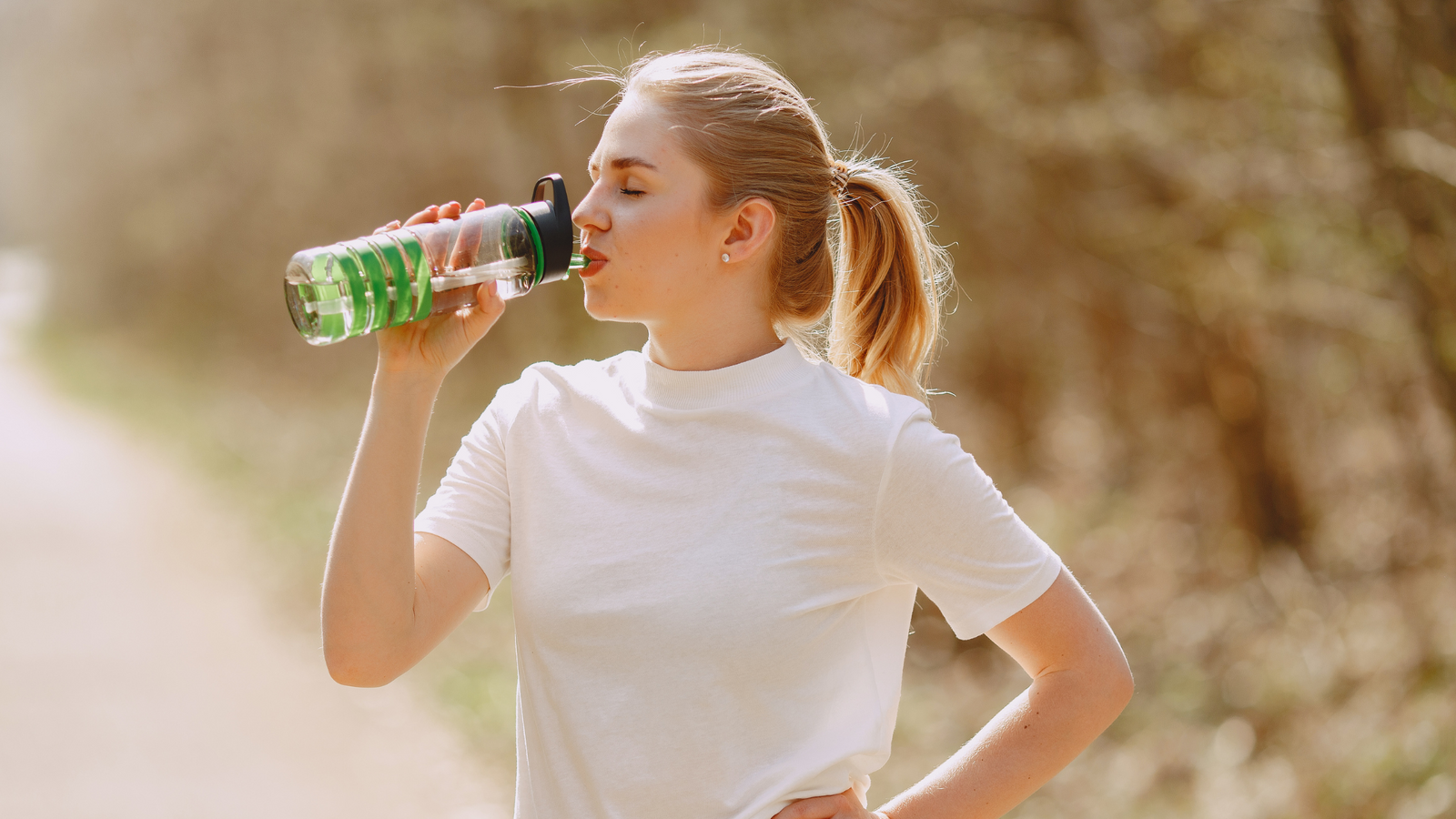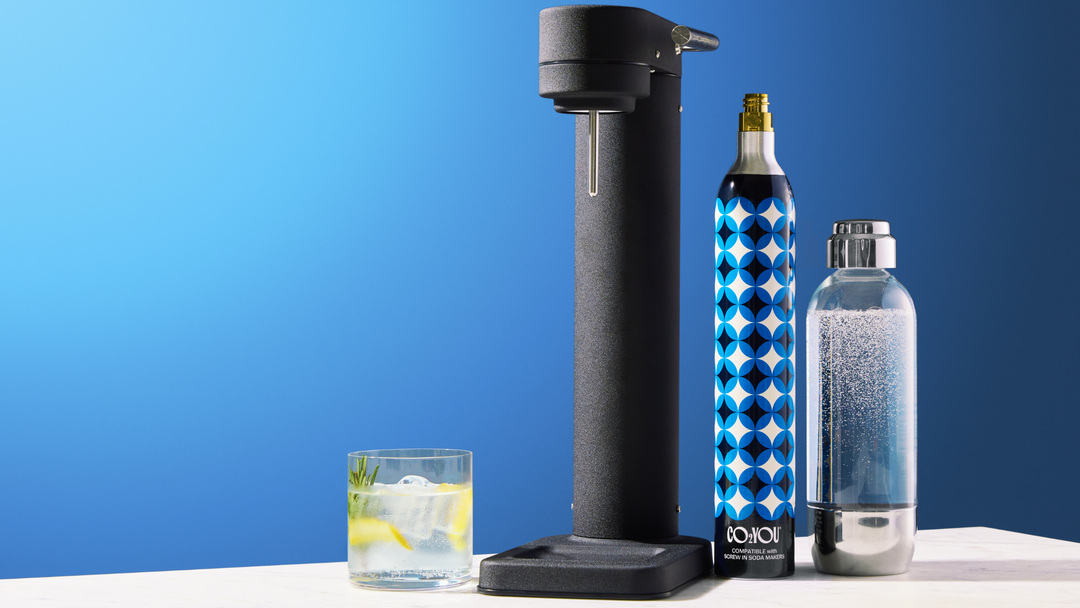Do Fizzy Drinks Hydrate or Dehydrate You?

Fizzy drinks, with their effervescent sparkle, have become popular in our everyday health and diet. But do they actually hydrate or dehydrate you?
The allure of fizzy drinks is undeniable. Their effervescence and unique taste have made them popular among consumers, with sparkling water leading the charge. This growing trend is not just about the taste but also the perceived health benefits. As more people turn to these bubbly beverages, it's important to understand their impact on our hydration levels and overall health.
The rise in popularity of fizzy drinks, particularly sparkling water, has sparked a debate about their role as a hydration beverage. Are they a suitable alternative to still water? Can they truly count towards our daily fluid intake? Let's delve into these questions and more as we explore the world of fizzy drinks.
Fizzy Drinks as a Hydration Choice
Fizzy drinks, including sparkling water, are indeed growing in popularity. However, their role as a hydration beverage isn't as cut and dry. The spotlight on hydration for everyday health has many people questioning—do fizzy drinks count toward your fluid intake? It's a valid query given that, on the one hand, these bubbly refreshments can appear as a fun alternative to drinking water.
But is substituting water with fizzy options a feasible hydration strategy? There's more to that carbonated fizz than meets the eye. The answer lies in the balance, careful consideration, and understanding your body's hydration needs.
Comparing Nutrition Facts: Fizzy Drinks vs. Other Beverages
Understanding the nutritional facts of different beverages can help you make informed decisions about what you consume. This knowledge can guide you towards healthier choices that quench your thirst and contribute to your overall well-being. Let's compare nutrition facts and see how fizzy drinks stack up against other popular beverages.
Fizzy Drinks
Fizzy drinks, also known as carbonated beverages, are popular for their refreshing taste and bubbling sensation. However, health experts have expressed concern about their nutritional content.
These drinks typically contain high amounts of sugar, leading to a considerable surge in calorie intake. A single can of a common fizzy drink contains around 140 calories and about 39 grams of sugar, significantly above the recommended daily intake.
Sugar-free or zero-calorie options aren’t much healthier - there is a trade-off. Diet sodas often contain artificial sweeteners like aspartame, sucralose, or saccharin. While these are generally recognised as safe by regulatory agencies, some studies have raised concerns about their long-term effects on metabolism, gut health, and appetite regulation. Research has linked excessive consumption of diet sodas to various health issues, including an increased risk of metabolic syndrome, cardiovascular diseases, and type 2 diabetes. However, these studies often indicate that correlation does not imply causation.
Fizzy drinks lack essential nutrients that are crucial for maintaining overall health. They might quench your thirst momentarily, but their impact on the body’s hydration status and fluid balance is questionable.
Soda Water
Soda often contains caffeine, a well-known diuretic that increases urination, causing you to lose more water—each trip to the loo results in fluid loss, which can counteract your hydration efforts. When you factor in the high sugar content found in many sodas, it becomes clear why soda may not be the best choice for staying hydrated. While it does provide some liquid, soda’s negatives—excess sugar and its diuretic effects—can overshadow its hydrating benefits.
Think of it this way: every can of soda is like taking two steps forward and one step back in your hydration journey. Health experts generally recommend moderation; soda can be enjoyed occasionally but shouldn’t be relied on for maintaining hydration.
Sparkling Water
In contrast, sparkling water tells a different story. Free from caffeine, it lacks the diuretic effects that soda has. Like still water, sparkling water provides pure H₂O, making it a great hydrating option without the drawbacks. Its refreshing bubbles can also encourage more frequent drinking, helping you to maintain your hydration levels throughout the day.
Some health experts argue that sparkling water is a more balanced choice for hydration. However, not all sparkling waters are created equal—some brands include ingredients that may have a mild diuretic effect. It’s always a good idea to check the label to ensure your sparkling water is free from additives that might work against your hydration goals.
In summary, soda and sparkling water are fizzy drinks, but their impact on your body is quite different. Understanding these differences can help you make more informed choices, keep you hydrated, and support your overall health.
Do Fizzy Drinks Contribute to Dehydration?
The question of whether fizzy drinks contribute to dehydration is complex. While they contain water, their diuretic properties can potentially increase urine output, leading to a loss of fluids.
Diuretic substances are those that increase urine output. They accomplish this by stimulating urinary production in the body. This increased urine output can make you lose more fluid from your body, potentially leading to dehydration.
It's crucial to remember that not all fizzy drinks can lead to significant dehydration. The key is moderation. Drink plenty of water alongside your fizzy beverages to prevent dehydration. It's also important to listen to your body and recognise the signs of dehydration, which we will cover in the next section.
The link between fizzy drinks and dehydration is more complex. Yet, their diuretic effect could contribute to dehydration if not managed properly.
How to Maintain Hydration While Enjoying Fizzy Drinks
Firstly, recognise the signs of dehydration. If you discover parched lips, dry skin, fatigue, or an uptick in your urine output, you might be dehydrated. Second, balance out any fizzy drinks with plenty of water. While it's no secret that we all have a favourite fizzy beverage, a glass of water for every soft drink you consume can help prevent the diuretic effect that could contribute to dehydration.
Next, listen to your body's thirst signals. If you're feeling thirsty, there's a good chance you're already dehydrating. Always having a water bottle handy can deter you from opting for a fizzy drink when you're parched and make it easier to stay hydrated.
Substitute Cravings with Sparkling Water
If you constantly crave soda and want to cut down, why not start making sparkling water at home?
Making sparkling water at home offers several benefits that enhance both your hydration experience and lifestyle. Firstly, it’s a cost-effective alternative to purchasing bottled sparkling water. By investing in a sparkling water maker, you can produce your own bubbly beverages with just the push of a button, significantly reducing your expenses over time. Moreover, homemade sparkling water allows you to control the level of carbonation according to your preference, ensuring that you enjoy the fizz just the way you like it.
Making sparkling water at home can be an environmentally friendly choice. By using a reusable bottle and CO₂ canisters from CO2 YOU, you help reduce plastic waste associated with single-use bottles. You can also experiment with flavours by adding fruits, herbs, or even natural fruit juices, transforming your sparkling water into a personalised beverage that suits your taste.
Whether you prefer a hint of lemon, a splash of berry, or a refreshing mint infusion, the possibilities are endless, making hydration enjoyable and versatile. Plus, by creating your own sparkling water, you’re more likely to reach for a healthier drink option, steering clear of sugary sodas or artificial drinks.
Final Thoughts on Fizzy Drinks and Hydration
While fizzy drinks can add a bit of sparkle to your day, they shouldn't be your go-to hydration beverage. Their diuretic effect, especially in drinks that contain caffeine, can increase urine output and potentially contribute to dehydration.
It's essential to maintain a balanced beverage consumption, prioritising drinking water throughout the day to meet your hydration goal. Sugary beverages and artificially sweetened drinks may seem appealing, but their health effects can impact your overall health in the long run.
Remember, everyday health is about making smart choices. Listen to your body, recognise signs of dehydration, and ensure you drink plenty of water to maintain fluid balance.
Why not order your CO2 YOU subscription today as you take a step towards a healthier you?


